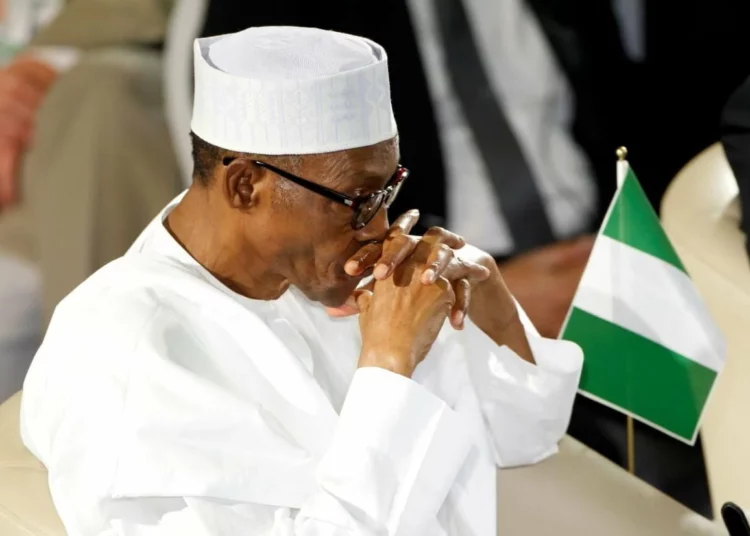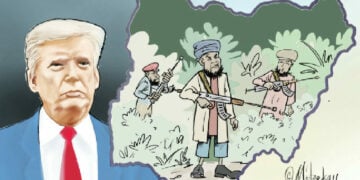Healing is a highly functional phenomenon in post conflict situations, or in countries that are emerging from violence! For instance, countries like Rwanda, South Africa, Kenya and Uganda among many others have undergone this.
We had a semblance of it when former President Olusegun Obasanjo set up The Human Rights Commission of Nigeria, also known as the Oputa Panel. But there was no reconciliation and very little healing, if any!
However, events of the country in the past few years show that this country is dire need of healing. Here is why.
The United States Council on Foreign Relations (CFR) in 2018 documented at least 19,890 deaths in Nigeria since June 2015, just after President Muhammadu Buhari assumed office on May 29, 2015. In the same year the United Kingdom-based Christian Solidarity Worldwide (CSW) disclosed that Fulani militias killed 1,061 people in about 106 attacks on communities in central Nigeria in the first quarter of 2018. CSW said 11 other attacks on communities in the southern parts of the country by the militia claimed a further 21 lives.
The CFR, an independent body of experts dedicated to providing advice on policy options facing countries, put the cumulative deaths in Nigeria from May 2011 to May 2018 at 53,595. According to the think tank, the NST tracks violence that is both causal and symptomatic of weakness of Nigeria political institutions and citizen alienation. It
said the data was based on weekly surveys of Nigerian and international media and that they included violent incidents related to political, economic, and social grievances directed at the state or other affiliated groups (or conversely the state employing violence to respond to those incidents).
A recent report by Punch Newspaper alleged that no fewer than 53,418 Nigerians lost their lives to non-state actors between May 29, 2015 and October 15, 2022. The deaths occurred mostly from farmers/herders’ conflict, clashes by religious groups, and attacks by terrorists and bandits. It stated that the data of Nigerians killed within the period were obtained from the Nigerian Security Tracker, a project of the Council on Foreign Relations of the United States of America.
A breakdown of the killings by geo-political zones showed that the South-West region recorded no fewer than 2,170 deaths in the period under review with Ekiti having 109; Ondo, 340; Osun, 198; Ogun, 507; Oyo, 310; and Lagos, 706. A total of 3,688 deaths were recorded in the South-South region with Akwa Ibom State having 373; Bayelsa, 350; Cross River, 685; Delta, 720; Edo, 463; and Rivers, 1,097. In the South-East region, Abia recorded 249 killings; Anambra, 613; Ebonyi, 562; Enugu, 273; and Imo, 574, thus making a total of 2,271.
The North-Central region, including the Federal Capital Territory, recorded a total of 8,593 deaths with Benue topping with 2,771; Niger, 2,572; Plateau, 1,709; Kogi, 654; Nasarawa, 320; FCT, 317; and Kwara, 250. The North-East region, which is the epicentre of Boko Haram and ISWAP insurgency, recorded the highest number of deaths in the period under review with a total of 23,106. Borno State recorded 18,213 deaths; Adamawa 1,853; Yobe, 1,375; Taraba, 1,335; Bauchi, 169; and Gombe 161.
According to the report, a total of 13,590 persons have so far been killed within the period under review in the North- West region, where 2,037 lives have been wasted in the president’s home state of Katsina.
However, Zamfara leads with 5,616 deaths; Sokoto, 872; Kaduna, 530; Kebbi, 331; Kano, 149; and Jigawa, 55. You can see that the land of Nigeria is drenched with the blood of the innocent. While we may apply the law to deal with the perpetrators of these heinous acts, what can provide sustainable solution to the crises bedeviling the country is for the nation to undergo healing and for Nigerians to forgive one another. And in unity create a new nation out of this nation that is currently not working for anyone or any group for that matter.
In his book, “The Healing of Nations: The Promise and Limits of Political Forgiveness,” Mark Amstutz, contends that the international community’s focus on retributive justice for past offences has prevented a more active consideration of restorative justice approaches such as truth commissions, public apology and repentance, reparations, and ultimately forgiveness and the lifting of deserved penalties. His central contention is that “the most expeditious and effective way of reckoning with past collective offences is by intentionally seeking to foster political healing through reconciliation based on moral rehabilitation of antagonists.”
He argues that the “restoration of communal bonds and the promotion of national reconciliation can only occur when individuals and groups are deeply committed to national solidarity and are willing to treat offenders or enemies as people entitled to human dignity.” He noted that forgiveness is powerful because it combines backward-looking accountability and forward-looking reconciliation. To examine the relative power of forgiving without forgetting, Amstutz looks at the cases of Argentina, Chile, Northern Ireland, and South Africa. He argues that unlike other transitional justice strategies, political forgiveness seeks to overcome the cycle of anger and revenge through the moral reformation of attitudes and dispositions, the “purification of memory,” and the restoration of relationships through reconciliation.
While forgiveness is sometimes viewed as either inappropriate at the group level or simply a code word for forgetting, Amstutz avoids this conception. Rather, he considers it to be a demanding ethic. “At a minimum, offenders must be prepared to disclose and acknowledge the truth about wrongdoing, admit their own culpability, express remorse, and offer reparations; for their part, victims must avoid vengeance, express empathy toward offenders, and forgo claims of justice.”
It was Mahatma Gandhi who famously said that an eye for an eye makes the whole world blind. Nigerians have wronged each other. There is animosity between various zones which are results of perceived historical wrongs. There are parts of the country that have not been forgiven for the killings that accompanied the first military coup in Nigeria in 1966 even though the coup perpetrators did not consult the people before embarking on their misadventure.
The time to heal the wounds of the Civil War of 1966-1970 and Boko Haram, outlawed Indigenous People of Biafra (IPOB), Odua Peoples Congress (OPC), Niger Delta militants and bandits among others, is now. No one is more qualified to lead this process of national healing than President Muhammadu Buhari. He may decide to establish a South African modeled Truth and Reconciliation Commission where aggrieved Nigerians will have the opportunity to express their grievances so that we can end the bloodletting where the aggrieved are in the bushes fighting with AK-47 against perceived injustices. This, however, can only be possible if the elite key into this reconciliation and healing process.
One way of speeding up the healing is to insist that political gladiators and political parties concentrate on policy issues rather than the current trend of ethnic bashing and regional baiting! Also, Nigerian voters should be educated to elect leaders based on competency, capacity and commitment to deliver on promises and not be swayed by ethnic animosity, ethnic superiority, religious bigotry and other primordial sentiments. For, these are the very sentiments that lead nations on the path to Rwanda!
MAY NIGERIA REBOUND





